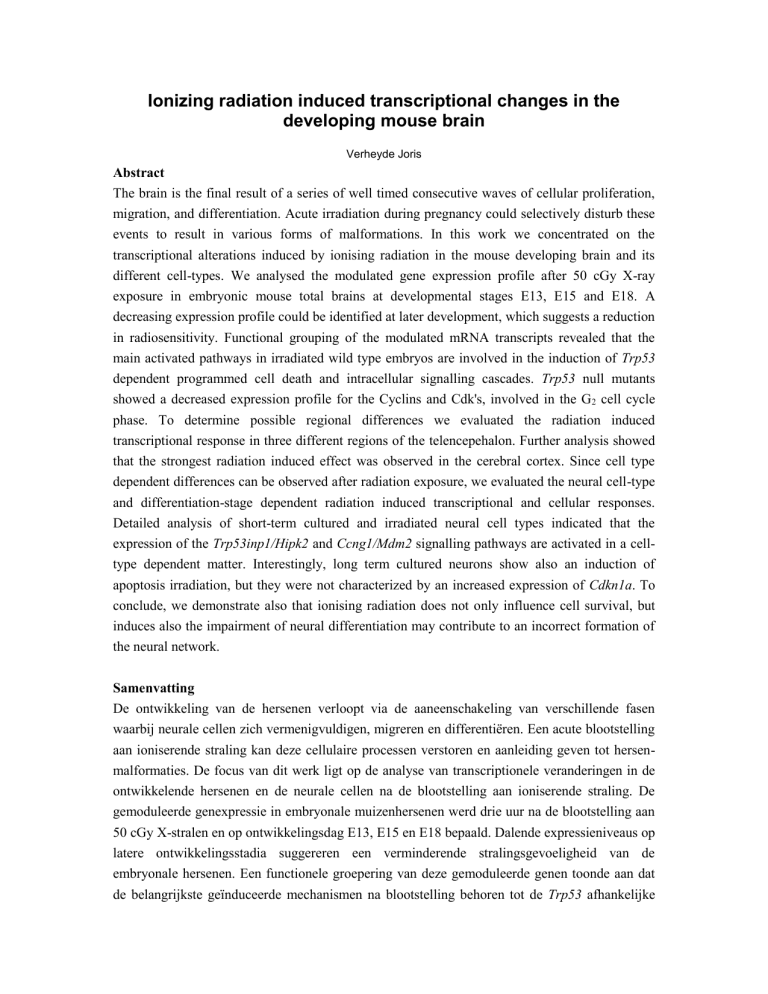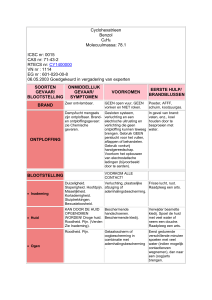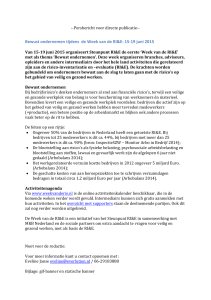
Ionizing radiation induced transcriptional changes in the
developing mouse brain
Verheyde Joris
Abstract
The brain is the final result of a series of well timed consecutive waves of cellular proliferation,
migration, and differentiation. Acute irradiation during pregnancy could selectively disturb these
events to result in various forms of malformations. In this work we concentrated on the
transcriptional alterations induced by ionising radiation in the mouse developing brain and its
different cell-types. We analysed the modulated gene expression profile after 50 cGy X-ray
exposure in embryonic mouse total brains at developmental stages E13, E15 and E18. A
decreasing expression profile could be identified at later development, which suggests a reduction
in radiosensitivity. Functional grouping of the modulated mRNA transcripts revealed that the
main activated pathways in irradiated wild type embryos are involved in the induction of Trp53
dependent programmed cell death and intracellular signalling cascades. Trp53 null mutants
showed a decreased expression profile for the Cyclins and Cdk's, involved in the G2 cell cycle
phase. To determine possible regional differences we evaluated the radiation induced
transcriptional response in three different regions of the telencepehalon. Further analysis showed
that the strongest radiation induced effect was observed in the cerebral cortex. Since cell type
dependent differences can be observed after radiation exposure, we evaluated the neural cell-type
and differentiation-stage dependent radiation induced transcriptional and cellular responses.
Detailed analysis of short-term cultured and irradiated neural cell types indicated that the
expression of the Trp53inp1/Hipk2 and Ccng1/Mdm2 signalling pathways are activated in a celltype dependent matter. Interestingly, long term cultured neurons show also an induction of
apoptosis irradiation, but they were not characterized by an increased expression of Cdkn1a. To
conclude, we demonstrate also that ionising radiation does not only influence cell survival, but
induces also the impairment of neural differentiation may contribute to an incorrect formation of
the neural network.
Samenvatting
De ontwikkeling van de hersenen verloopt via de aaneenschakeling van verschillende fasen
waarbij neurale cellen zich vermenigvuldigen, migreren en differentiëren. Een acute blootstelling
aan ioniserende straling kan deze cellulaire processen verstoren en aanleiding geven tot hersenmalformaties. De focus van dit werk ligt op de analyse van transcriptionele veranderingen in de
ontwikkelende hersenen en de neurale cellen na de blootstelling aan ioniserende straling. De
gemoduleerde genexpressie in embryonale muizenhersenen werd drie uur na de blootstelling aan
50 cGy X-stralen en op ontwikkelingsdag E13, E15 en E18 bepaald. Dalende expressieniveaus op
latere ontwikkelingsstadia suggereren een verminderende stralingsgevoeligheid van de
embryonale hersenen. Een functionele groepering van deze gemoduleerde genen toonde aan dat
de belangrijkste geïnduceerde mechanismen na blootstelling behoren tot de Trp53 afhankelijke
intracellulaire signaal-transductie en de inductie van apoptosis. Bij Trp53 deficiënte embryo’s
werd een verlaagd expressieprofiel voor verschillende cyclines en cycline-afhankelijke kinasen
teruggevonden, wat duidt op een arrest in the G2 fase van de cel-cyclus. Analyse van
hersenweefsel laat echter niet toe om de transcriptionele veranderingen van verschillende neurale
cellen aan te tonen. De genexpressie resultaten van bestraalde en gecultiveerde (24u) primaire
neuronen en astrocyten toonde aan dat de genen betrokken bij zowel de Trp53inp1/Hipk2 als de
Ccng1/Mdm2 signaal-transductie mechanismen een modulatie vertoonden. Anderzijds vertonen
ook neuronen die voor lange termijn gecultiveerd werden apoptosis, zonder dat er een expressie
van Cdkn1a kon geregistreerd worden. Analyse van verschillende neurale celtypes na
blootstelling aan een lage dosis ioniserende straling suggereert dat verschillende mechanismen
verantwoordelijk zijn voor de activatie van P53 en dat deze mechanismen verschillen naargelang
het celtype en het differentiatiestadium












